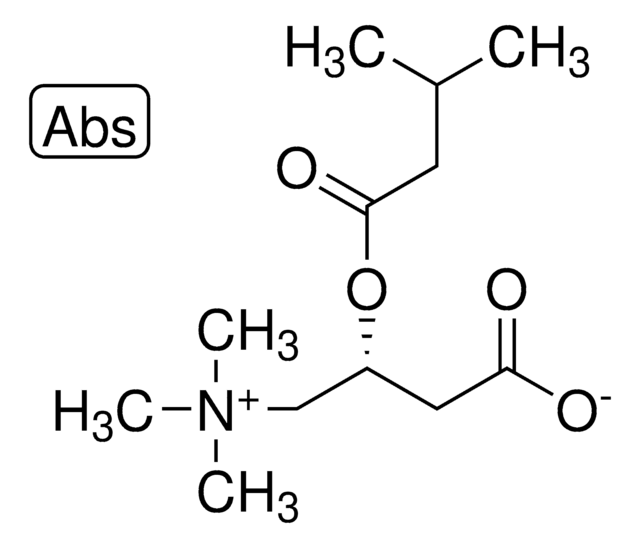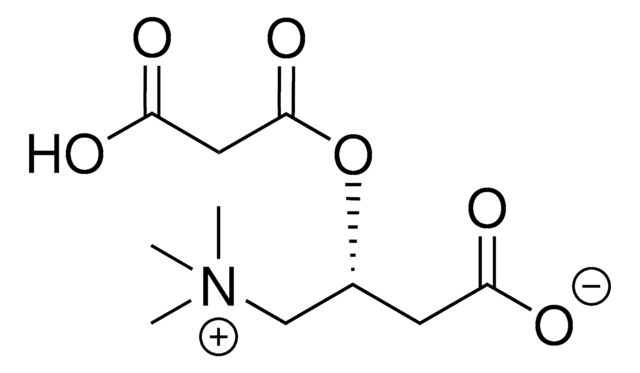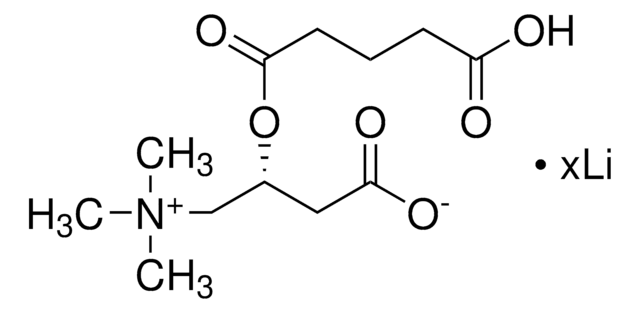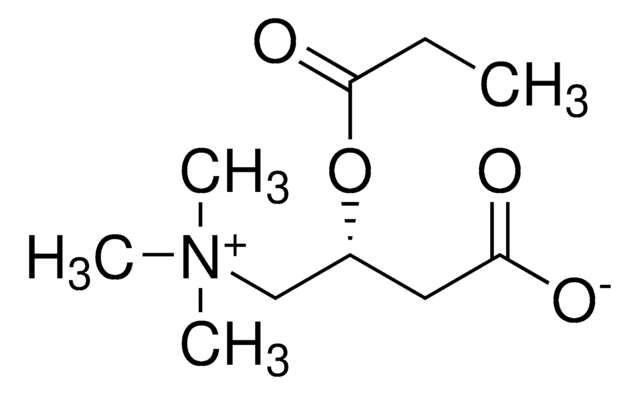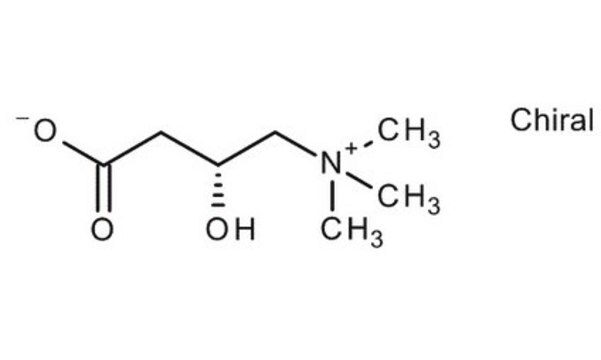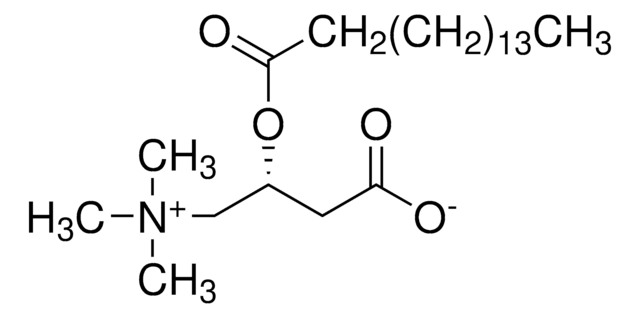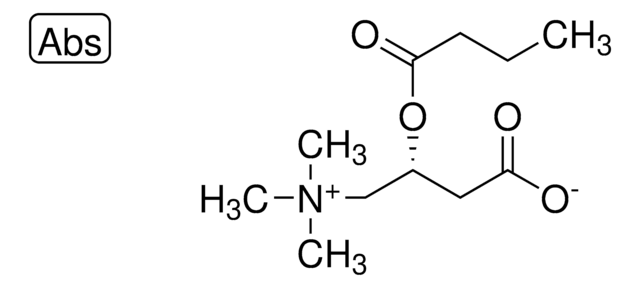72715
Glutaryl-L-carnitine lithium salt
≥98.0% (TLC)
Synonym(s):
L-Carnitine lithium glutarate
About This Item
Recommended Products
product name
Glutaryl-L-carnitine lithium salt, ≥98.0% (TLC)
Quality Level
Assay
≥98.0% (TLC)
form
solid
optical activity
[α]/D -20±2°, c = 1 in H2O
impurities
≤10% water
color
white to off-white
storage temp.
2-8°C
SMILES string
C[N+](C)(C)C[C@H](OC(CCCC(O)=O)=O)CC([O-])=O.C
InChI
1S/C12H21NO6/c1-13(2,3)8-9(7-11(16)17)19-12(18)6-4-5-10(14)15/h9H,4-8H2,1-3H3,(H-,14,15,16,17)/t9-/m1/s1
InChI key
NXJAXUYOQLTISD-SECBINFHSA-N
Looking for similar products? Visit Product Comparison Guide
Biochem/physiol Actions
also commonly purchased with this product
Storage Class Code
11 - Combustible Solids
WGK
WGK 3
Flash Point(F)
Not applicable
Flash Point(C)
Not applicable
Regulatory Listings
Regulatory Listings are mainly provided for chemical products. Only limited information can be provided here for non-chemical products. No entry means none of the components are listed. It is the user’s obligation to ensure the safe and legal use of the product.
JAN Code
72715-BULK:
72715-VAR:
72715-50MG:
72715-10MG:
Certificates of Analysis (COA)
Search for Certificates of Analysis (COA) by entering the products Lot/Batch Number. Lot and Batch Numbers can be found on a product’s label following the words ‘Lot’ or ‘Batch’.
Already Own This Product?
Find documentation for the products that you have recently purchased in the Document Library.
Customers Also Viewed
Our team of scientists has experience in all areas of research including Life Science, Material Science, Chemical Synthesis, Chromatography, Analytical and many others.
Contact Technical Service